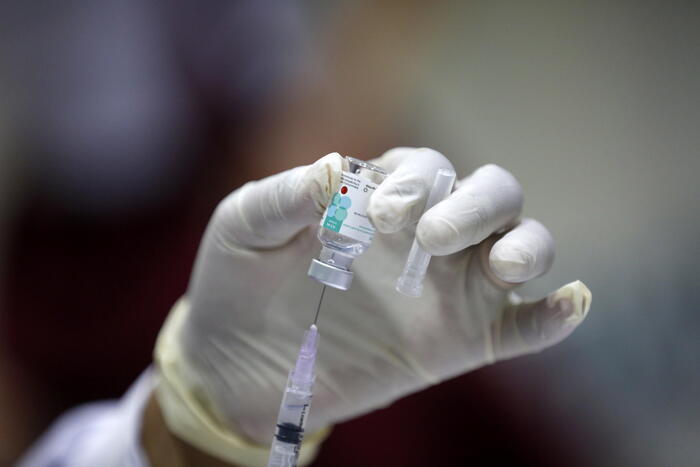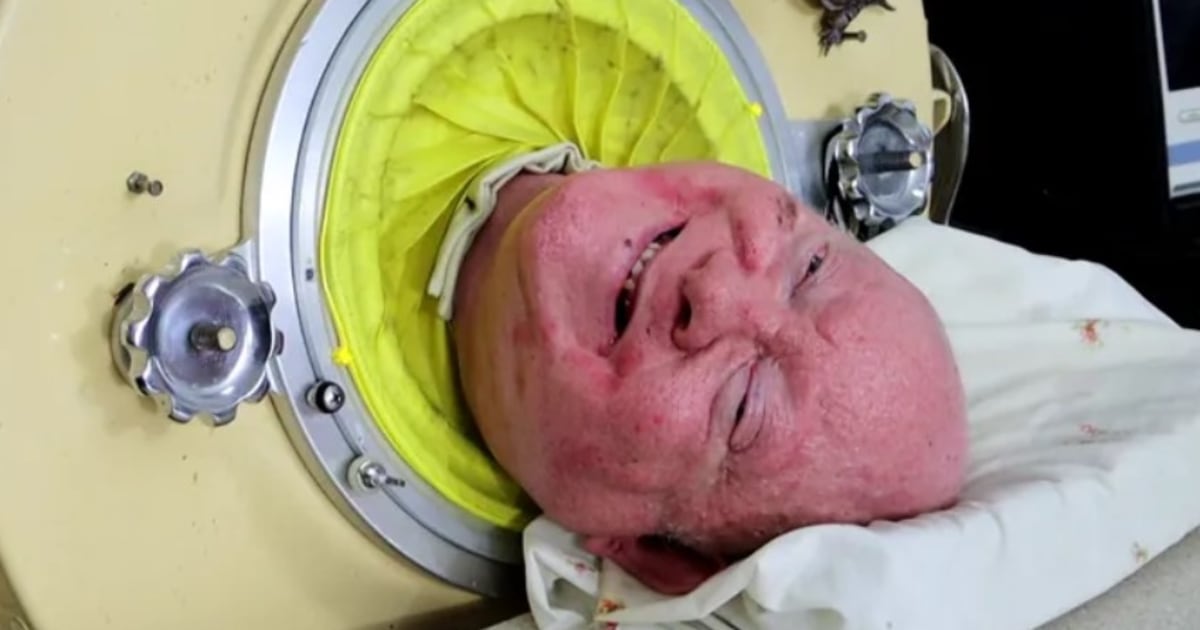In 2021, the Urgent Spanish Foundation (FundéuRAE), promoted by the EFE Agency and the Royal Spanish Academy, chose
vaccine
as word of the year.
When is your turn?
Which one did they put on you?
Have they called your mother yet?
Have you made an appointment for the second dose?
For months "the" vaccine became a regular topic in our conversations, in the news and in our lives.
After the outbreak of the pandemic in 2020, and thanks to significant investment and prioritization on the global agenda, immunization against covid-19, developed in record time, opened a door to hope, and became one of the most effective tools in the fight against coronavirus.
To date, in just about 16 months since the WHO approved the first coronavirus vaccine in December 2020, more than 11.54 billion doses have been administered worldwide, and 65.4% of the world population has received at least one.
Of course, many challenges lie ahead, perhaps the most pressing being that of achieving universal and equitable immunization, which requires accelerating it in countries with fewer resources.
But at the same time that protection against covid-19 was advancing, millions of boys and girls stopped receiving their doses against diseases such as measles, diphtheria or polio.
The restrictions, the weakness of national health systems overwhelmed by the pandemic and then the rise in transport prices and logistical difficulties, have interrupted or delayed routine vaccination programs and campaigns in many countries.
In Lebanon, for example, the childhood vaccination rate has fallen by 31%.
The country is going through a serious crisis with a general rise in food and energy prices that has weakened the health system and, of course, routine vaccination.
To date, in just about 16 months since the WHO approved the first coronavirus vaccine in December 2020, more than 11.54 billion doses have been administered worldwide
In Latin America and the Caribbean, on the other hand, there has been a very worrying setback, which began before the pandemic and has been accentuated with it.
In just five years, the complete schedule (three doses) of the diphtheria, tetanus and pertussis (DTP3) vaccine has fallen from 90% in 2015 to 76% in 2020. This indicator, which is used as a measure of global coverage of childhood immunization, indicates that one in four boys and girls in the region is vulnerable to multiple diseases.
The coronavirus has confronted us, often dramatically, with our vulnerability and need for protection.
In the face of this disease, the new vaccines gave us hope of being stronger than the virus or, of having tools to prevent it, and of recovering the ability to protect ourselves.
This is a sensation that we do not usually experience with respect to other diseases, which, however, are just as threatening for millions of children in the world.
Pneumonia, diarrhoea, malaria or measles are very real threats to their lives, and protecting them against these ailments is the only way and the best gift they can receive.
Fortunately, there are now effective vaccines for more than 25 diseases, and thanks to them, more than 80% of the world's children can aspire to a long and healthy life.
However, there are still 23 million girls and boys who are not being vaccinated and, therefore, are unprotected against potentially deadly and perfectly preventable diseases.
This is something we cannot afford.
We have to ensure that “vaccine” is much more than the word of a year;
we have to make it a reality for every boy and every girl, year after year, wherever they are
In fact, most of those 23 million unimmunized children are precisely those who need it most.
Most of them live in conflict zones, in remote areas and in informal urban settlements.
They are therefore more exposed to infections because they often live in unsanitary or overcrowded conditions, and also have poor access to health services and adequate medical care.
For any child, but even more so for them, a vaccine that prevents them from getting measles, tetanus or diarrhea can mean the difference between life and death.
One of these particularly complicated contexts is currently Ukraine.
In October 2021, due to the drop in vaccination coverage, the appearance of a polio outbreak set off alarm bells.
It was urgent to reverse the situation and, on December 30, 2021, the Ministry of Health signed a national plan, with the support of Unicef, to stop the outbreak and expand coverage for children between six months and six years.
The war in Ukraine has forced the suspension of planned campaigns, in addition to putting health care and child immunization in general in a critical situation.
Yet despite the conflict, and as part of their emergency response, UNICEF and Ukrainian health workers are working to vaccinate and protect as many children as possible.
The war in Ukraine has forced the suspension of planned vaccination campaigns, in addition to putting health care and child immunization in general in a critical situation
Thanks to vaccines, the infant mortality rate has been halved and up to three million lives are saved each year.
We have to ensure that “vaccine” is much more than the word of a year;
we have to make it a reality for every boy and every girl, year after year, wherever they are.
To achieve this, it is necessary to strengthen health systems and primary care, so that the necessary means, personnel and protocols are available to vaccinate all boys and girls;
We must prioritize the communities and areas with the lowest coverage and with “zero-dose” children, with comprehensive actions that serve families in health, nutrition, water and sanitation, and social services, and allocate specific resources to immunization campaigns and programs.
Each vaccine, each prick, each drop, is much more than a word.
It is an act of care and protection towards our children, and towards all the boys and girls in the world, and towards ourselves, since the vaccination of each one protects us all.
That's why we continue to #VacunandoAlMundo.
Blanca Carazo
is responsible for Unicef Spain Programs.
You can follow PLANETA FUTURO on
,
and
, and subscribe
to our 'newsletter'
here
.









